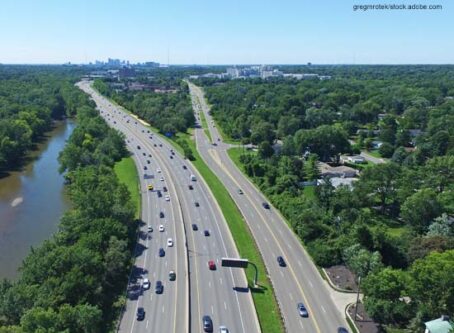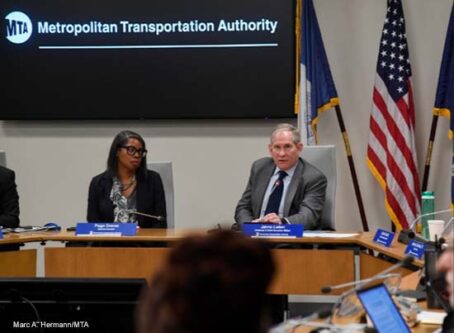PennDOT approved to install tolls on major bridges
Motorists in Pennsylvania may be paying more money to travel on certain bridges now that the Pennsylvania Department of Transportation received approval to charge tolls for its Major Bridge P3 program.
On Nov. 12, the Public Private Transportation Partnership in Pennsylvania gave PennDOT the green light for the Major Bridge P3 program, which allows the state to install tolls on major bridges that are in much need of repairs. The program is intended to accelerate the reconstruction and rehabilitation of major bridges in partnership with the private sector. According to a news release, this may be accomplished by considering user fees – i.e., tolls.
Approval of the Major Bridge P3 program allows PennDOT to consider bridge tolls. No further details about potential tolls were available as of publication. PennDOT spokesperson Alexis Campbell said the department is screening candidate bridges. PennDOT expects torelease a list of bridges or package of bridges in the first quarter of 2021. The department will apply tolls in a geographically balanced manner across the state, she said.
However, the recent approval allows PennDOT to consider tolls. Campbell said that although tolls are an option for the Major Bridge P3 program, PennDOT is exploring other funding options as well.
If PennDOT decides to use a toll on certain bridges, it will collect tolls electronically through E-ZPass or toll-by-plate invoice.
Major bridges are defined as structures of significance based on size, location and cost of repairs or replacement. Eligible bridges will be those that need timely attention to enhance safety and to avoid disruptions and community impacts if closures or weight restrictions were imposed, according to PennDOT.
Campbell said that contracts under the Major Bridge P3 program can be for 20-30 years or longer. Length of contracts depend on a project’s cost and complexity. According to Campbell, PennDOT is aiming for 30-year contracts.
If a toll is used, revenue will first go to the contractor for construction, maintenance and operation of the facility. Additional revenue will be used within close proximity of the bridge being tolled in accordance to federal regulations.
“The larger goal of this initiative, however, is to reduce the pressure on PennDOT’s existing funding streams by making these bridges financially independent, potentially freeing up funding for other projects on the transportation network,” Campbell said.
The Alliance for Toll-Free Interstates sent Land Line the following statement:
“A public-private partnership (P3) for bridgework is shorthand for more tolls in the Keystone State. Drivers will pay more for a P3 bridge than it cost to rebuild because the private partner must make a profit for its investors, and there are enormous administrative costs associated with tolling operations. With tolling contracts for 30 years and longer along important thoroughfares, costs for shipping goods and services increase, inevitably leading to higher prices for consumers. Tolling bridges is a bad deal for Pennsylvania drivers, and we hope state leadership will abandon going down this ill-advised path.”
According to PennDOT documents, the department has an annual funding gap of more than $8 billion.
Part of the gap is due to decreasing fuel tax revenue as vehicles become more fuel efficient. Nearly three quarters of highway and bridge funding in the state is generated through fuel taxes, according to PennDOT. Significantly reduced travel as a result of the pandemic has exacerbated that revenue stream shortfall.
“While COVID-19 certainly hasn’t helped, funding for interstate and expressway bridges has been eroding for decades due to increasing fuel efficiency, inflation, and changes in travel, and those needs grow every year,” Campbell said.
More tolls for the Major Bridge P3 program do not need the approval of the state legislature. Act 88 of 2012 established the Public Private Transportation Partnership Board, which consists of the secretary of transportation, secretary of the budget, four General Assembly-appointed members, and one governor-appointed member. Federal law allows tolling on bridges that are replaced or reconstructed.
Upon approval from the board, the act authorizes PennDOT to enter into agreements with the private sector for transportation-related projects such as the Major Bridge P3 program. All projects must go through the appropriate channels, including feasiblity studies. Tolls also must adhere to 23 U.S.C.Section 129, which is the federal regulation governing tolls.
Recently, PennDOT completed its $900 million Rapid Bridge Replacement project. The state replaced 558 structurally deficient bridges. According to PennDOT, the first-of-its-kind project bundled the bridge replacements in a public-private partnership agreement. Plenary Walsh Keystone Partners will finance, design, construct and maintain the bridges for a 28-year term. No tolls were used in that project. PennDOT was authorized to issue up to $1.2 billion in private activity bonds from the U.S. Department of Transportation. LL









